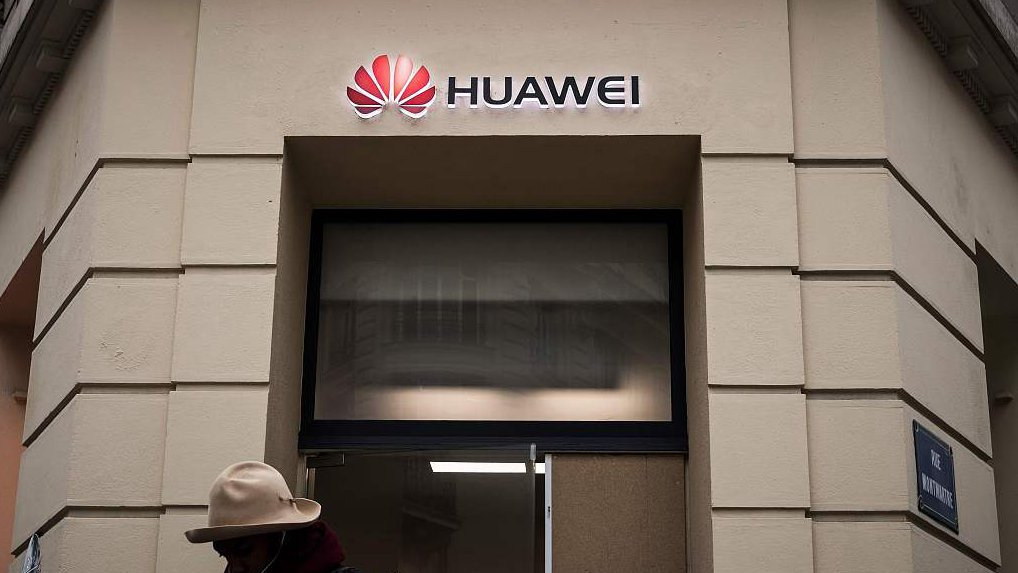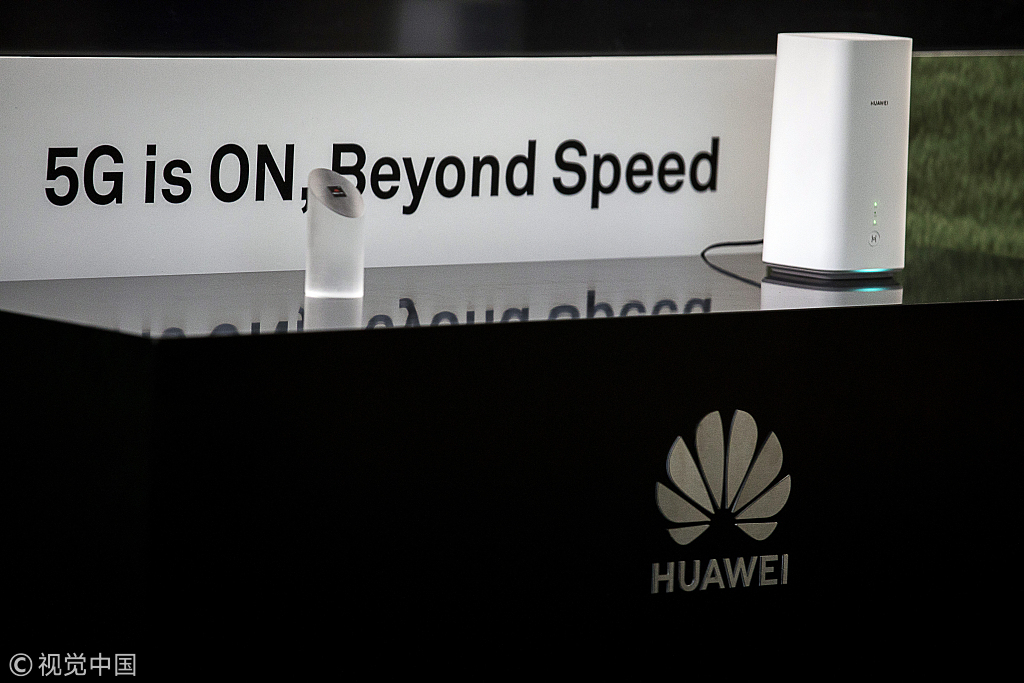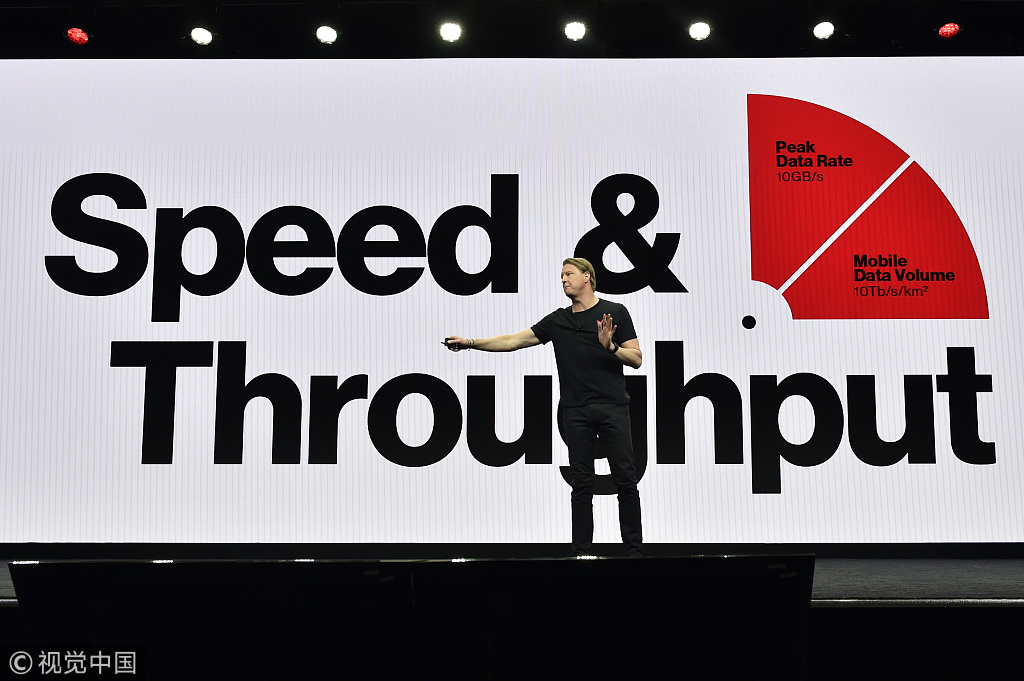
Opinion
19:33, 20-Feb-2019
Opinion: Why the U.S. cannot 'crush' Huawei
Zhao Yuanzhen

Editor's note: Zhao Yuanzhen is an opinion editor with CGTN Digital. The article reflects the author's opinion, and not necessarily the views of CGTN.
In an interview with the BBC, Huawei's founder CEO Ren Zhengfei defied America's pressure and its attempted isolation of Huawei. “There's no way the U.S. can crush us," he said. "The world cannot leave us because we are more advanced. Even if they persuade more countries not to use us temporarily, we can always scale things down a bit."
Mr. Ren is not boasting in his claim. After British intelligence's conclusion that the security risk posed by Huawei could be mitigated, it is reported that Germany is also considering letting Huawei in despite U.S. warnings.
This is a huge blow to America's efforts in uniting its close allies in blocking Huawei. Last week, U.S. Secretary of State Mike Pompeo failed in his trip to Central Europe when he tried to persuade Hungary to end business with Huawei, saying it might be questionable for the U.S. to “partner alongside with them.”
But against the storm of America's pressure, Huawei still has enough leverage in its development of 5G.

The Huawei Technologies Co. 'Balong 5000' chip for 5G devices is unveiled during an event in Beijing, China, January 24, 2019. /VCG Photo
The Huawei Technologies Co. 'Balong 5000' chip for 5G devices is unveiled during an event in Beijing, China, January 24, 2019. /VCG Photo
5G has more than 100 times capacity than 4G and will enable us to download a film in less than five seconds. Essentially, it represents the future of a transformed Internet that could be used in settings such as self-driving cars, Internet of Things, and remote medical operation. According to a report by IHS, the 5G value chain could generate a whopping 3.5 trillion U.S. dollars in output and 22 million jobs by 2035.
Thus, the rollout of 5G would greatly promote the world's mobility and digitalization, helping the key players in the field earn a VIP seat in the global competition for technology advancement. It is no wonder that Trump is pressuring companies to accelerate the deployment of 5G nationwide.
And racing alongside the U.S. is China. Europe has already lost a battle in 5G coding due to a lack of investment and resources.
Perhaps that's why Europe has been taking a diplomatic approach towards Huawei. Even for the purpose of balance, Europe perhaps would not ban Huawei due to its long tradition of valuing competition after tasting the bitterness of the monopoly of American social media giants.
The anti-Huawei rhetoric from the U.S. will not only face suspicion from Europe, but most likely its own companies as well. In November last year, Huawei disclosed the list of its 92 key suppliers, of which 33 are American companies. In a world where countries' economies are closely intertwined, even the U.S. could not develop on its own.

Verizon CEO Hans Vestberg delivers a keynote address at CES 2019 at The Venetian Las Vegas on January 8, 2019 in Las Vegas, Nevada. /VCG Photo
Verizon CEO Hans Vestberg delivers a keynote address at CES 2019 at The Venetian Las Vegas on January 8, 2019 in Las Vegas, Nevada. /VCG Photo
According to the WSJ reports, tech companies including Intel and Cisco have already complained to the U.S. Trade Representatives that tariffs against China would raise the cost of routers and switches, which in turn will slow down the deployment of 5G.
As an article from Huxiu, a famous Chinese business and technology media outlet, points out that with Huawei's breakthrough in core 5G technology, it has accumulated enough patents which American operators simply could not avoid using in the Enhanced Mobile Broadband setting, the primary use case for 5G.
In a more practical sense, Huawei is now able to lower the cost of the base station to gain enough of an edge in the foreign market, as the deployment of 5G requires much more base stations than 4G. By the end of 2018, it sent more than 10,000 5G base stations to operators in Europe, the Middle East and the Republic of Korea.
In June last year, British Telecom launched a collaborative research center on 5G. Gavin Patterson, CEO of BT expressed his excitement and said: “collaborative research has a key role to play as the technology develops.” Perhaps instead of leveraging non-market tools to hit Huawei, the U.S. could also take a more collaborative approach.
(If you want to contribute and have specific expertise, please contact us at opinions@cgtn.com)

SITEMAP
Copyright © 2018 CGTN. Beijing ICP prepared NO.16065310-3
Copyright © 2018 CGTN. Beijing ICP prepared NO.16065310-3